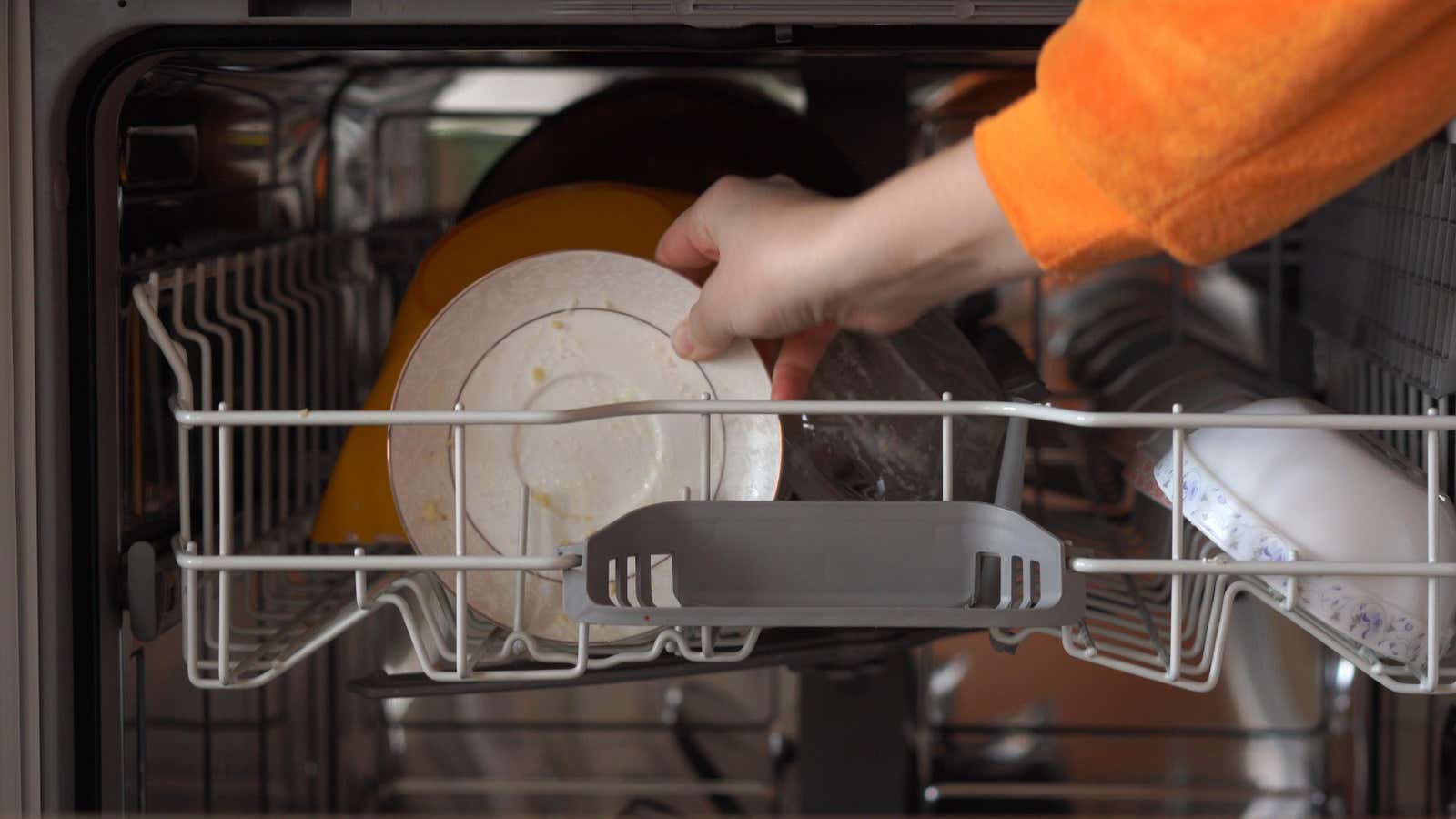Stuck Lemon Seeds and Other Dishwasher Problems (and How to Fix Them)

You know how to wash properly and how to properly load your dishwasher, so why do some of your dishes come out dirtier than others? If the last thing you want is paying a repairman, or worse, buying a brand new car, you might be in luck. The reason your dishwasher might not clean your dirty dishes could be as simple as your dishwasher getting too dirty on its own.
My knowledge of troubleshooting dishwashers comes from my restaurant days. Too often, waiters have dragged a glass shelf from the dishwasher upstairs only to find that a full row of glasses is still dirty, even though the adjacent rows of glasses were perfectly clean. Whenever this happened, we knew the most likely culprit: lemon seeds. Here’s what you need to know about troubleshooting your dishwasher before hiring the professionals.
Check dishwasher nozzles for food or debris.
Before you decide that something is wrong with your plumbing or the inner workings of your machine, there may be a much simpler solution. Check the nozzles (or wherever water exits) for clogs with food and debris. In the restaurant, lemon seeds were notorious for getting stuck in one nozzle at a time; consequently, only one or two rows of glasses will not enter the jet of this nozzle as they pass through the dishwasher. So, if you like to drink lots of fresh lemon water, or maybe put half a lemon in the dishwasher to give your glassware an extra shine, make sure you always double check to remove any seeds first.
All kinds of food and debris can clog your dishwasher’s water flow, so keep an eye out for any small, compact pieces (such as nuts or seeds) that could easily get stuck in the nozzle. Again, we advise you not to get too carried away with pre-rinsing dishes before starting the machine .
Check your filters for food.
Your dishwasher is equipped with a filter at the bottom that is designed to catch all the food and debris that falls off the dishes and can clog the drain. In the same way that you remove lint from a filter in a dryer, you may need to remove food particles from a coarse filter in a dishwasher.
Food also naturally clogs in the dishwasher hose, which usually runs from the dishwasher to the waste bin and drain pipe under the sink. Luckily, this is another fix you can probably do yourself. Check the accessible parts of the hose (perhaps under the sink). If you find a blockage, you can most likely remove the blockage with a commercially available drain cleaner.
How to prevent a clogged dishwasher
Prevention is always the best solution to keep your dishwasher running at peak efficiency. Here are some clogging prevention tips, courtesy of Home Depot :
- Before loading the dishwasher, remove large crumbs and other food residues from the dishes.
- Choose a hot water cycle to get rid of hardened food.
- Keep your dishwasher clean and in good working order by wiping down the inside and cleaning all accessible parts of the dishwasher.
- In addition to checking for blockages where water exits, check the filter regularly and remove anything that might be stuck in it.
- Run your dishwasher frequently to ensure trouble-free operation.
If you’ve tried all of the above and your dishwasher still doesn’t work like it used to, you may have a more complex plumbing problem that needs to be checked by the professionals. But for your sake, I hope it’s just a pesky lemon pit in your nose.